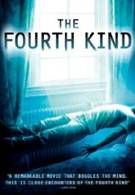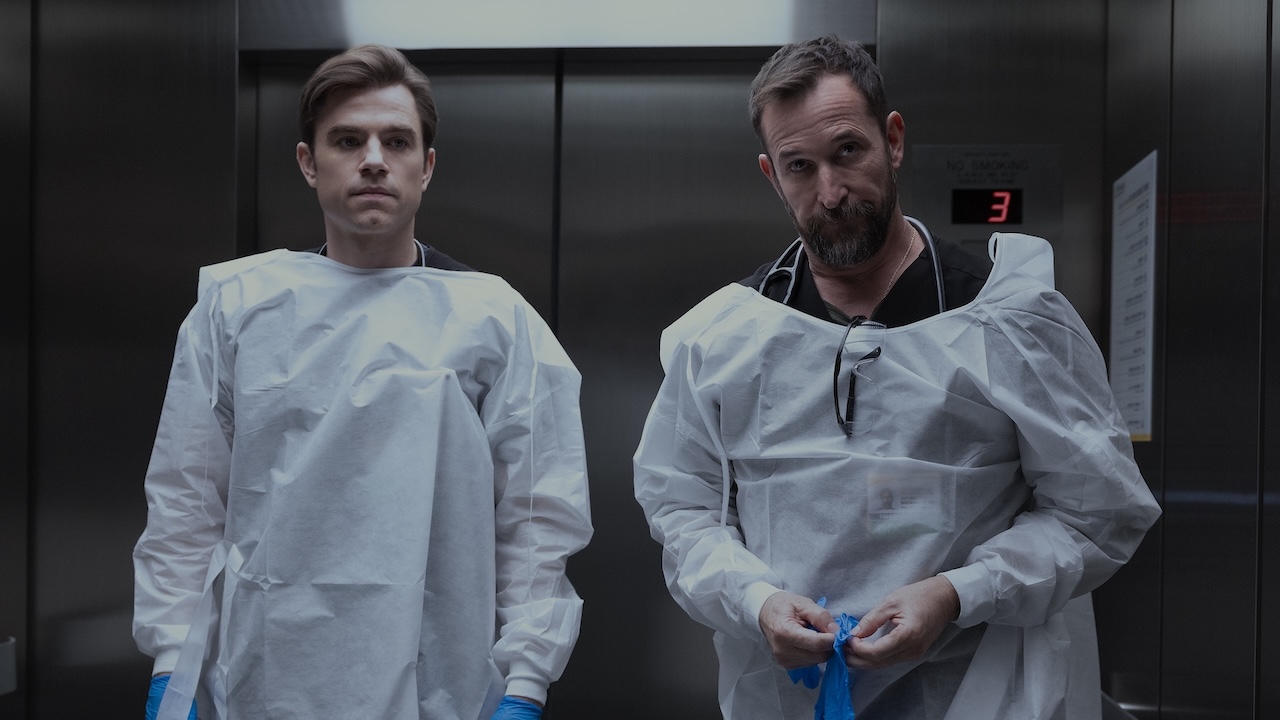I honestly cannot remember the last time a movie made me actually HATE it before it was over. This film really got under my skin, to the point I almost wished physical harm on its creators. The arrogance and ignorance on display is truly amazing. Arrogance of its superiority over the audience's intellect and ignorance of filmmaking craft. I almost had no words to write about this movie since my reaction was virtually Cro-Magnon: "Film Bad. Film Very Bad." Period. (Smack on head with club.) The unfortunate thing is that The Fourth Kind has a pretty good premise. Nothing to write home about, but a solid thriller story. A psychologist (Milla Jovovich) dealing with the mysterious death of her husband and fellow researcher discovers that numerous people have had the same terrifying experience of being violated by a malevolent alien force. Told in a more conventional manner, it could've been an effective tale of the paranormal. Alien-abduction stories give most people the willies, and this one seemed poised to tell one with a straight face.
The problem is that it also decides to lie to your face by pretending to be honest.
The film opens with Jovovich walking up to the camera and telling the audience that "Hello" she's Milla Jovovich -- actress, model, and sometime singer -- and that in the film you are about to watch she will be using her dramatic skills to portray psychologist Dr. Abigail Tyler. A person the film purports to be REAL in a recreation of ACTUAL events that took place in Nome, Alaska and including AUTHENTIC footage taken by Tyler. Of course, it's all fake, and even a child could see through the gimmick. The actress playing the "real" Dr. Tyler in footage shot with consumer video equipment is so amateurish that the staged scenes with Jovovich seem far more convincing. The film tries to be meta-clever and mix the Hollywood recreation with the original "archive footage" of Tyler herself, often showing the two versions side by side in a split screen. It wants to have its Blair Witch cake and eat it, too.
Suspension of disbelief is the most important and basic of narrative conventions. In most cases, it just happens naturally, a contract between the creators and the audience that says the fiction we are engaging in will be accepted as reality for the duration. Without it, film and theater would have no emotional effect at all. There are certainly ways of playing with this convention, such as breaking the fourth wall or engaging in satire that slyly comments on the action. But this is always a tricky thing and often less than successful. It is a contract that cannot be broken without severe repercussions: losing the audience. The Fourth Kind thinks that being open about the fact that it is a dramatization will create a greater suspension of disbelief, something akin to the realism captured in docu-horror films like Paranormal Activity and Cloverfield. But here it actually has the opposite effect. Since we are constantly presented with two realities -- one that is supposedly real and another that is full of the conventions of Hollywood filmmaking -- we can never suspend our disbelief. Both appear to be staged, and by presenting them at the same time they appear to be more rather than less obviously staged. Without being allowed to choose a reality, we cannot invest any emotion into the story.
For about 15 minutes, the movie settles on presenting the events as a dramatization, and it immediately begins to improve. But then we get a shot of the local Nome, Alaska Sheriff and onscreen it says, "Actor Will Patton in the role of Sheriff August," and the whole illusion is shattered again. It couldn't be worse if they decided to show the production slate clapping onscreen. It's a shame, since there was potential here for a good low-budget thriller. Some of the "archive footage" showing Dr. Tyler's patients reliving their experiences are quite intense. A movie that presented the story using this archive or found-footage gimmick currently in vogue would work pretty well. Conversely, a straight classical narrative starring Jovovich, Elias Koteas, and Will Patton as Sheriff August would've also been good. The actors are convincing enough in their roles, and that movie alone seems to have a grip on how to create a story that presents paranormal phenomenon while also allowing us to question it Used separately, either one of the film's approaches could work effectively. Putting them together does not work like chocolate and peanut butter, but rather oil and water. The standard definition DVD of The Fourth Kind is presented in widescreen format with a 2.35:1 aspect ratio. Audio is available in Dolby Digital 5.1, English DVS, and Dolby Digital 2.0, with subtitles in English SDH, Spanish, and French. The image is well presented with good contrast for a film that alternates well lit scenes with ones in near total darkness.
The only extra is approximately 23 minutes of deleted scenes, which go a long way toward proving that there was a pedestrian and yet still more effective film that was left on the cutting-room floor. These are mostly conventional dramatic scenes that develop the characters played by Jovovich and Koteas in particular. One unedited section of the "archive" footage is also included, and this would've made another interesting extra for the DVD. Separating the footage and allowing the viewers the choice of watching each version alone would be a great study in film technique. As it is, skip this DVD and just wait for it to show up on cable.
Your Daily Blend of Entertainment News

